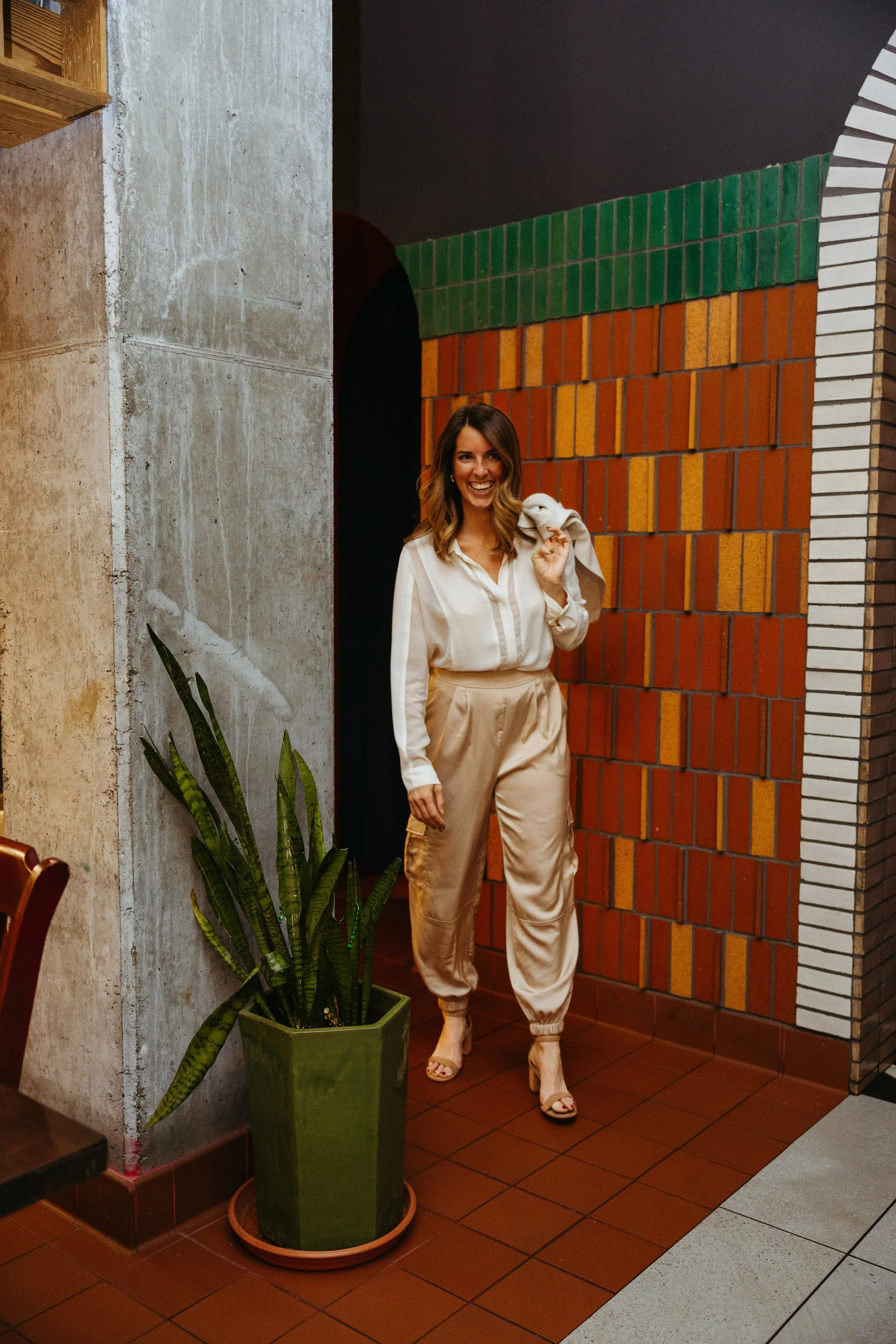What I Wish I Knew When I Bought My First Investment Property
WHAT I WISH I KNEW…
How much buying an investment property would help set me up for my future!
When I bought my first duplex, my entire goal was to house hack. You see, I was about to leave my corporate 9-5 and jump into the entrepreneur world. I was terrified to say goodbye to a bi-weekly check, so I needed to cut back on my expenses. My number one focus became reducing the monthly rent I was paying each month.
By cutting down on my monthly spending, I knew I could live on less and take bigger risks, so that became my focus. I paid down debt, bought my duplex, and reduced my monthly budget spend by about 35%.
WHAT I DIDN’T KNOW…
What I didn't know at the time, though, was how much I was setting up my future self. You see...I never thought about what would come next. I wasn't planning for rental income to increase over time. I wasn't thinking about the value of my property appreciating over 30+ years. I wasn't viewing the property as a tax shelter. I didn't buy the property in hopes of converting it to a triplex. AND I did not plan to subsidize the mortgage of my second property with the rental income of my first property.
So you can say I was really just living in the moment, haha! Now, looking back...it was one of the best decisions I've ever made, and here's why:
For only $15,000, I was able to buy an owner-occupied duplex that would allow me to reduce my monthly living expense down to just $600. How, well, you see, when you purchase an investment property like a duplex, the other tenants help pay for your mortgage. In this case, as I began to make small cosmetic improvements to the property, I was able to increase the rental income from $1,400 to $2,100, drastically reducing what I was paying towards my mortgage payments each month.
When I began looking to buy my next property, I realized that when I move out I would be able to cash flow monthly, which would allow me to continue a low monthly spend on housing. You see, at the time, my monthly mortgage payments were merely $2,662. Having converted the building to a triplex, when I moved out of my unit, I would have a total rental income of $2,100 + $2,100 + $995 = $5,195. That is a net take-home of $2,533 per month. That means that when I bought my house for $535,000 and had a monthly mortgage payment of $2,897, I only had to personally cover $364 each month! My triplex rental income covered not only my rental property mortgage but also almost my entire primary home mortgage. Now that is house hacking at its finest!
Another other detail I wasn't taking into account was how quickly real estate can appreciate in value. Since purchasing the property in 2016 for $436,000, property values have increased approximately 70%. That means...while my tenants have been covering the mortgage on my $15,000 upfront investment, I could sell the triplex today and make almost $300,000 in 8 years! If property values continue to appreciate at a mere 7% average rate of return over 30 years, the property will be worth over $5.8M!
Lastly, when I bought this rental property, I had no idea what kind of tax vehicle it could be for me and my future. By leveraging annual depreciation, the IRS allows investors to write off depreciating values on their annual tax returns. There are multiple ways to rinse and repeat this tax strategy that the wealthy use, and I had no idea how powerful it could be!
WHAT I’D DO DIFFERENTLY…
Knowing what I know now, I, of course, would have done a few things differently, though. Here's what I wish I would've done:
When I purchased the property, I used an FHA loan. This allowed me to put a lower percentage down initially of 3.5%. Once I knew I had made enough improvements to the property and the value was over 20% of the loan amount, I refinanced the loan into a Conventional loan. Switching loan products allowed me to remove the private mortgage insurance (PMI) that I was paying each month, amounting to a few hundred dollars in savings each month. I was ecstatic, but what I wish I would've been coached to do was a cash-out-refinance. I could have still made the switch from an FHA loan to a Conventional loan, but while doing it, I could have pulled out any extra equity in the property to use towards the downpayment on another home/property. Instead, I left the equity in the triplex and will most likely never refinance it again, seeing that it is now sitting at a 3.25% interest rate (which is quite good).
The other big miss I made in my eyes is not applying Cost Segregation (cost seg) the year that I bought the property. Generally, CPAs like only to apply cost segs the year a property is bought vs. going back a few years because they believe when you "reopen" your tax records, it gives the IRS room to audit ALL of your records and not just the property you're wanting to review. So, when I learned about cost seg and how you can accelerate your depreciation to make back a lot of your out-of-pocket money in year one, you can only imagine how bummed I was when my CPA did not recommend we go back a couple of tax years and apply Cost Segregation.
PURCHASE MY INVESTMENT PROPERTY TAX PLAYBOOK here
With all of that being said, I will leave you with this: Follow your gut and make the investment. Real estate is a powerful vehicle, and you have no idea how many doors it will open. Don't let the media, friends, or family scare you from benefiting from long-term gains. There is power in making a decision today that will have LARGE IMPACTFUL benefits down the road.
Those who time the market and/or hesitate end up missing out, so do yourself a favor and start investing in your future today!
Jen
















The Landlord Starter Kit provides essential platforms, templates, and strategies to establish strong rental property operations. From comprehensive lease agreement details and move-in/move-out checklists to an order of operations and rental application forms, this kit equips new and experienced landlords with practical resources to manage their rental properties efficiently.